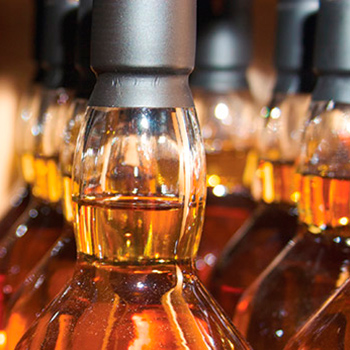Bhubaneswar: In the wake of the recent hooch tragedy in Uttar Pradesh that claimed over 90 lives and Assam where the toll has crossed 127, it is worth pondering whether the authorities in Odisha are prepared to avert such situations in the state. Odisha is one of the prominent states in the country where deaths have often occurred due to the intake of spurious liquor.
The infamous Cuttack hooch tragedy of 1992, in which around 300 people died as per the non-government sources, was a glaring example of the vulnerability of Odisha. Huge portion of the state’s population is poor and easily falls into the trap of spurious liquor-sellers in pursuit of cheaper alcohol. This leads to various diseases or hooch tragedies like the one in UP or in Assam. Normally the deaths occur when people drink ethyl alcohol adulterated with the methyl alcohol. Methyl alcohol is extremely hazardous to the human health. It is much cheaper and widely available in the market for its usefulness for various industrial purposes. However, the unscrupulous sellers often mix methanol in the ethyl alcohol, thus endangering the life of the consumer.
Reports in the media about repeated raids on illegal liquor manufacturing units in various areas of the state, including the slums right under the nose of the Excise department and police officials in the Capital city, are common. It goes on to reveal the inefficiency and careless approach of the police department. However, there are several factors that indicate the state government’s apathy towards checking the menace of spurious liquor trade in the state. The reasons for the rise in illegal liquor trade can broadly be categorised into two – lacunae in enforcement and lack of conviction and punishment.
The Excise department of the state has been grappling with several shortcomings in proper enforcement. Some of them are listed below:
1. The government finds it hard to meet the growing demand for alcohol and often fails to supply sufficient amounts of genuine alcohol in the state. As a result of the gap between demand and supply, unscrupulous traders sell methyl spiked alcohol to consumers causing serious damage to their health.
2. The Excise department lacks the strength necessary to deal with the expanding illegal trade of bootlegging. For example, there are only 40 to 50 Excise officials deployed in Khurda district including the Capital area.
3. The poorly-equipped Excise department fails to rein in the illegal sale of spurious alcohol in the state. As per pre-Independence rules, the Excise sleuths are provided with one lathi and `30 as bicycle allowance to catch the bootleggers who use high-speed vehicles.
4. Most of the ground level staff of the Excise department has no proper training on the basics of the Excise trade and nabbing culprits. Only officers in the rank of sub-inspectors receive training. The government is yet to come up with a training institute for the Excise sleuths.
On the other hand, nexus between Excise sleuths and the culprits is responsible for poor conviction rate, which the CAG unearthed in its report on the Excise department in 2017.
As per the report, the number of pending Excise cases in courts was very high at 53,774 till mid-2017, while the average rate of conviction in the Excise cases between 2014 and 2017 is 2.49 per cent. In other words, almost every person held on the charges of involvement in illegal trade of liquor and other narcotic drugs are being set free by the court due to lack of evidence.
The report reveals, “There was a huge difference between the cases detected by the department and cases forwarded to courts for prosecution. This indicated that the offenders could not be apprehended in all cases. The average percentage of conviction in the last three years (2014 to 2017) was very low, which is suggestive of poor handling of cases”
The government is yet to establish Special Excise Courts to deal with cases involving Excise offences. The Patra Commission that investigated into the hooch tragedy in Ganjam in 2006 has advised the state government to establish such courts. The reports also unearthed the department’s indifference towards spreading awareness in the public about the hazards of spurious liquor. The audit found that the funds allocated for the awareness drive was kept idle.
Subsequently, the emboldened offenders have openly engaged in the illegal activities due to lack of punishment. They know that they will not be convicted for the excise crimes. The raids and arrests seem to be just eyewash to deceive the common man. It can be safely assumed from the blatant apathy of the government towards illegal liquor trade that the state is on the verge of another major hooch tragedy.
Govt turns blind eye to illegal liquor trade
